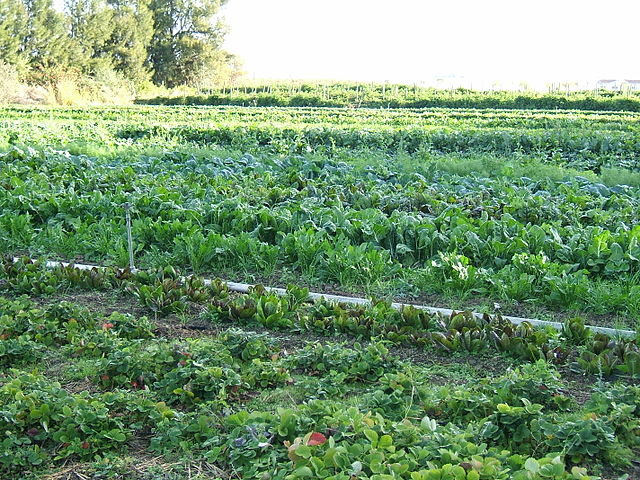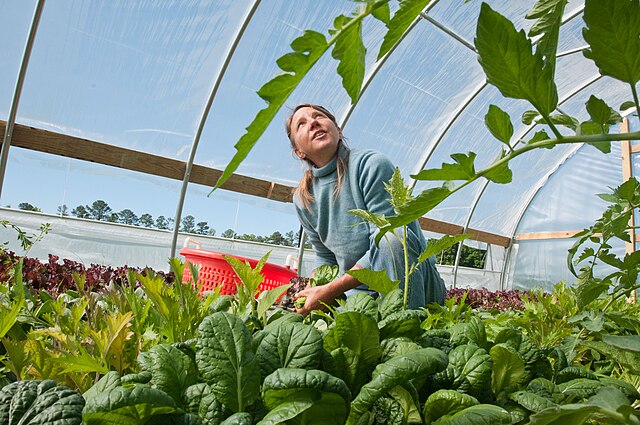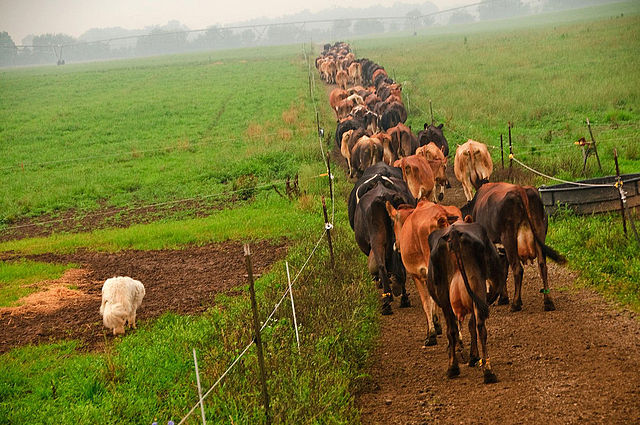Lady Evelyn Barbara Balfour, was a British farmer, educator, organic farming pioneer, and a founding figure in the organic movement. She was one of the first women to study agriculture at an English university, graduating from the institution now known as the University of Reading.
Balfour in 1943
Organic farming, also known as ecological farming or biological farming, is an agricultural system that uses fertilizers of organic origin such as compost manure, green manure, and bone meal and places emphasis on techniques such as crop rotation and companion planting. It originated early in the 20th century in reaction to rapidly changing farming practices. Certified organic agriculture accounts for 70 million hectares globally, with over half of that total in Australia. Biological pest control, mixed cropping, and the fostering of insect predators are encouraged. Organic standards are designed to allow the use of naturally-occurring substances while prohibiting or strictly limiting synthetic substances. For instance, naturally-occurring pesticides such as pyrethrin are permitted, while synthetic fertilizers and pesticides are generally prohibited. Synthetic substances that are allowed include, for example, copper sulfate, elemental sulfur, and veterinary drugs. Genetically modified organisms, nanomaterials, human sewage sludge, plant growth regulators, hormones, and antibiotic use in livestock husbandry are prohibited. Organic farming advocates claim advantages in sustainability, openness, self-sufficiency, autonomy and independence, health, food security, and food safety.

Organic cultivation of mixed vegetables in Capay, California
Organic farming in Virginia, USA.
Chloroxylon is used for pest management in organic rice cultivation in Chhattisgarh, India.
For livestock vaccines play an important part in animal health since antibiotic therapy is prohibited in organic farming.





